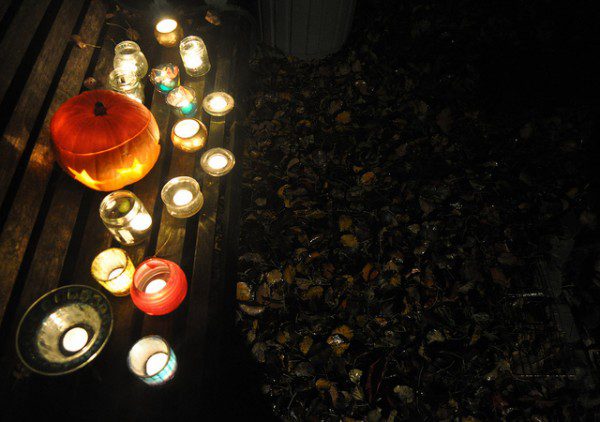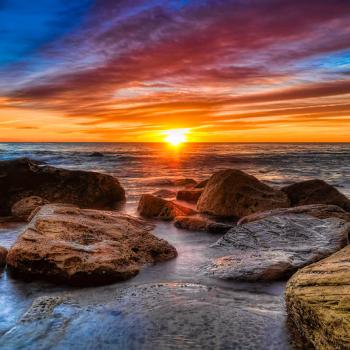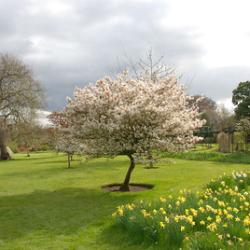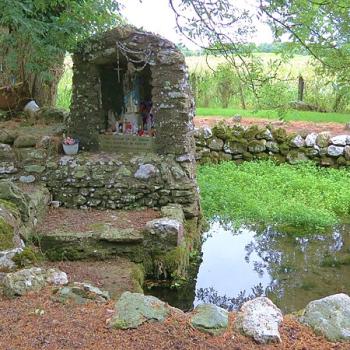
I loved the Litany of Saints when I was a Roman Catholic child. I loved the celebration of All Souls. I have always loved learning about my ancestors. Pictures, clothing, ceramics, words…everything about my forebears has always fascinated me.
I remember the last conversation I had with my great-grandmother. She was a tiny bird lady who loved tiny things. Candies. Figurines. Images. Anything beautiful and tiny. There is a tintype photograph of her—Annie—and her Grandmother Stuart, both dressed in their tartans. Annie was probably six years old when that picture was taken. I treasure that bent piece of metal.
Annie lived to be 102, and I cherish every memory, every photograph, every story of her.
My Love of Samhain
Since I first learned of it, Samhain has always had a privileged place in my life. And since my work with Stone Circle Wicca and its celebrants and initiates, Samhain has expanded from some of its traditional observances. The ethics behind the observances, however, are accessible to non Pagan-UU’s and others who don’t identify as Pagan.
Samhain is a high holy day—for some Wiccan Pagans the holiest night of the year—and I try to celebrate it with the solemnity and glory it merits.
In its most common form, Samhain is about honoring our dead, the Mighty Dead who are more intimate with us because the Veils of Seeing are at their thinnest at this time of year.
Samhain expanded is all about the ethic of responsibility, expressed through calling out to ancestors and descendants, those who live in the shadows beyond the Veil of Life-and-Death.
The celebrations, memorials, and communions of Samhain are both about acknowledging what the Mighty Dead leave for us, as well as what we leave for our Descendants unto the thousandth generation. The commemorations and devotions must come from a place of acknowledging that ancestor veneration is a complicated thing we do.
I do not give praise for the violence some among my Mighty Dead wreaked upon others among my ancestors. I do not give praise for the alcoholism that comes down through the generations.
So how might we offer thanks and praise for our Dead when we have had complicated relationships with them in life? Or when we know of actions we consider shameful or oppressive?
Some traditions get around this conundrum by saying that the dead are wiser than they were in life. That the Veil they pass through changes them, changes personality into Essence and creates them somewhat anew. While I am not opposed to this idea, I also believe that it could be a hard one for many of my UU siblings and friends to swallow.
Another Way
The key here, the key in the ethic of responsibility, is to acknowledge that we are built of countless generations. I am built, in part, of shame and oppression, as well as of usefulness and glory. I am built of what my Mighty Dead have given, and what they have given is complicated.
And so in part, Samhain is an expression of self-love. It is an expression of recognizing that life is a mixed bag, and yet it is what we have, at least for now. Samhain commemorations and devotions recognize that life is good and short and we owe our thanks and praise to those who came before us.
The flip side of all this, of course, is that we must be mindful of what we leave when we shuffle off this mortal coil. We too will die. And we will be Mighty. And we will be Dead. And we will leave, for Earth, for Descendants both of our body and not, for our legacy, whoever it is we have been and whatever it is we have done.
We are between the Ancestors and the Descendants. We are in a holy place.
















